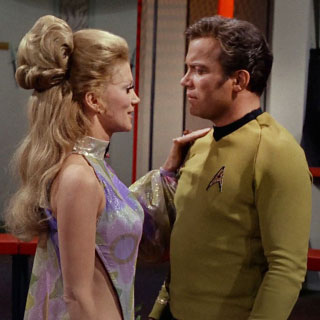Science Fiction has always had a dark side. There has been a touch of the irrational and absurd in the genre from the very beginning. Consider Hugo Gernsback. In photographs he looks like he might have been your grandmother’s or great-grandmother’s high school vice principal, but he started off publishing old subversives like H. G. Wells and 19th century degenerates like Edgar Allan Poe. Gernsback was an optimist who preferred to spend his time predicting future inventions like Google glass (he once called a TV antenna box he’d strapped over his eyes during a Life Magazine photo shoot “TV Glasses”) and describing how radar works, rather than bothering with social or psychological questions.
But when Gernsback started Amazing Stories back in 1926 he inadvertently turned his attention to just these kinds of problems. It turned out that wireless radios, energy beams, and space travel weren’t merely fun ideas—these things came with a price. What it cost us was our sense of connectedness and meaning, and we’ve been trading away our tradition of connection—trading away what we think of as human nature—for gadgets, blinking lights, and a fleeting sensation of power and speed for a long time now.
One of the first stories published in Gernsback’s magazine was entitled “The New Accelerator.” It was the story of a junkie. Wells’ scientist protagonist confesses his addiction, his need, in the fourth paragraph:
What I want—and what, if it’s an earthly possibility, I mean to have—is a stimulant that stimulates all round, that wakes you up for a time from the crown of your head to the tip of your great toe, and makes you go two—or even three—to everybody else’s one. Eh? That’s the thing I’m after.
 Even if you’ve never read this story you’ve undoubtedly encountered the premise before. You might have seen it in the Star Trek: The Original Series episode “Wink of an Eye.” When the sexy Queen Deela abducts Captain Kirk and speeds up his metabolism by exposing him to radiation she is subjecting him to the same idea that was represented in Wells’ stimulant.
Even if you’ve never read this story you’ve undoubtedly encountered the premise before. You might have seen it in the Star Trek: The Original Series episode “Wink of an Eye.” When the sexy Queen Deela abducts Captain Kirk and speeds up his metabolism by exposing him to radiation she is subjecting him to the same idea that was represented in Wells’ stimulant.
Deela: A long time ago, it is in our history, we used to be like you. Then our country was almost destroyed by volcanic eruptions. The water was polluted. Radiation was released. That changed us. It accelerated us.
The premise of both stories is that acceleration alone gives people the power to step outside of everyday life and to control it. The notion is that we can work harder, do life better, move faster, and become stronger. We can break free. And once this idea is implemented the rest of the world seems to stand still. What we’ve known as the only possible world is brought to a stop and the formerly impressive men and women of that world appear to us as mannequins. The idea is that we can freeze the world and, in so doing, get a firmer grip on it. But, as alluring as it is, as positive as it seems, this power always turns against us. From Wells’ story:
The effect as we walked about the thing began by being madly queer, and ended by being disagreeable. There they were, people like ourselves and yet not like ourselves, frozen in careless attitudes, caught in mid-gesture. A girl and a man smiled at one another, a leering smile that threatened to last for evermore; a woman in a floppy capelline rested her arm on the rail and stared at Gibberne’s house with the unwinking stare of eternity.
The problem is alienation.
Sure, Gernsback and his scientists can concoct their drugs and send us spinning forward at maddening speeds. Yes, the TV glasses and radio transmissions bring the world to us and seem to put it under our control, but just what do we want with it? Once you’ve got the world on freeze frame how to you hold on to yourself? Who are you anyway? Who would take this drug?
 The answer to that one might surprise you. It turns out that, after 80 years on the stuff, you end up as Adam Sandler.
The answer to that one might surprise you. It turns out that, after 80 years on the stuff, you end up as Adam Sandler.
That’s right. HG Wells’ “The New Accelerator” and the Adam Sandler vehicle Click have the same premise, but in Click the accelerator is a remote control. Sandler’s character can pause, rewind, or fast forward through life as a man-child. And in a world without a center, a world that can be changed at will, he turns to fart jokes, fat suits, and other juvenile distractions in order to keep himself from falling apart along with everything else.
The genre of science fiction is a fun house, an amusement park ride, but it’s also a problem. The question that’s always being indirectly asked is this: Just who do we think we are and, further, who do we want to be?
Could it be possible to live with how we decide to answer?
Douglas Lain is a fiction writer and a blogger for Thought Catalog and the Partially Examined Life. His novel Billy Moon is due out from Tor in August. You can find him on Facebook and Twitter. He is the podcaster behind the Diet Soap Podcast.










